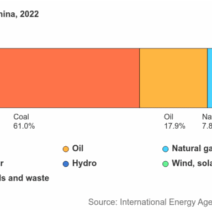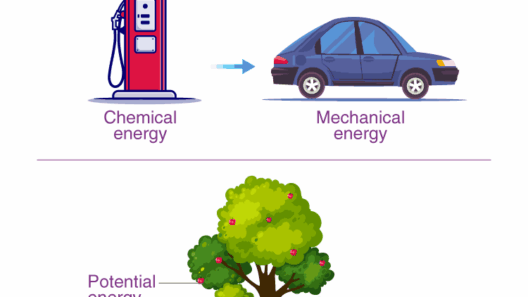Transportation is an essential aspect of modern life, yet it also plays a pivotal role in contributing to climate change and environmental degradation. By conserving energy during our commutes and travels, we can significantly mitigate our carbon footprints. This article presents various strategies and practical tips for implementing eco-friendly travel practices in both daily commutes and longer journeys.
Understanding the Impact of Transportation
Transportation accounts for a considerable portion of greenhouse gas emissions worldwide. In urban areas, the reliance on fossil fuel-powered vehicles exacerbates air pollution, leading to detrimental health effects and heightened environmental vulnerabilities. Acknowledging this impact is the first step towards embracing sustainable travel alternatives.
Choosing Eco-Friendly Modes of Transportation
The first and most effective measure for conserving energy is to opt for eco-friendly modes of transportation. Here are some alternatives:
- Bicycling: Riding a bicycle is a remarkably energy-efficient mode of transport. It produces no emissions and promotes physical fitness.
- Walking: For shorter distances, walking is not only sustainable but also beneficial for mental well-being and physical health.
- Public Transit: Utilizing buses, trains, or subways significantly reduces the number of individual vehicles on the road, thereby decreasing overall emissions per passenger mile.
- Carpooling: Sharing rides with others helps reduce the number of vehicles traveling in the same direction, which lessens congestion and emissions.
- Electric and Hybrid Vehicles: If a personal vehicle is necessary, consider electric or hybrid models, which use less fuel and can operate with lower emissions.
Maximizing Fuel Efficiency
When driving is unavoidable, several practices can improve fuel efficiency:
- Regular Maintenance: Keeping your vehicle well-maintained ensures optimal performance. Regular oil changes, tire checks, and air filter replacements can improve fuel efficiency by up to 10%.
- Tyre Pressure: Maintaining proper tire pressure is crucial. Under-inflated tires increase fuel consumption, while properly inflated tires improve efficiency.
- Reducing Idle Time: Turning off the engine when parked or waiting can save fuel. Idling consumes fuel unnecessarily and pollutes the environment.
- Smooth Driving: Accelerate gradually and glide to decelerate. Aggressive driving consumes more fuel due to rapid acceleration and harsh braking.
- Lighten Your Load: Removing excess weight from the vehicle can enhance efficiency. Every 100 pounds of unnecessary weight reduces fuel economy.
Optimal Route Planning
Effective route planning is essential for energy conservation.
- Use Navigation Apps: Navigation applications can identify the fastest routes and steer you away from traffic jams, which waste fuel. This technological advantage aids in reducing both time and emissions.
- Combine Errands: Plan out trips strategically. Combine errands into one journey to avoid multiple short trips, which can be inefficient and wasteful.
- Travel During Off-Peak Hours: Traveling during non-peak times can facilitate smoother traffic flow, reducing the strain on the vehicle and ultimately conserving fuel.
Incorporating Sustainable Practices into Travel
For those who travel away from home, adopting sustainable practices can greatly lessen energy consumption. Consider the following:
- Choose Eco-Friendly Accommodations: Opt for hotels that implement sustainable practices such as energy-efficient lighting, recycling programs, and low water usage initiatives.
- Support Local Economies: Use local transport and services that prioritize sustainability. This not only provides an authentic experience but also reduces energy consumption associated with long-distance transportation.
- Engage in Eco-Centric Activities: Participate in activities that promote environmental stewardship, such as volunteering for local conservation projects or nature tours emphasizing ecological integrity.
Advocating for Sustainable Transportation Initiatives
Beyond personal practices, advocating for systemic change is imperative. Support policies and initiatives aimed at enhancing public transportation, developing cycling infrastructure, and requiring stringent emissions regulations for vehicles. Engage with community leaders and organizations to promote alternatives that prioritize sustainability.
Education and Awareness
Lastly, fostering awareness about the importance of energy conservation in transportation can catalyze collective action. Share information on social media, engage in community forums, and participate in workshops focused on sustainability.
In conclusion, conserving energy during transportation involves a multifaceted approach that encompasses individual choices, community advocacy, and systemic changes. By intentionally selecting eco-friendly transport options, maximizing vehicle efficiency, and promoting sustainable practices, we can collectively contribute to a healthier planet and a more sustainable future. As individuals embrace these changes, greater awareness and activism can drive society towards a more sustainable and energy-efficient paradigm of transportation.








